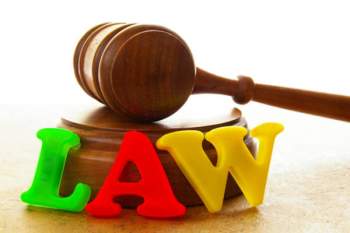
What You Need to Know About Child Support Cases

Family Forms
Family law courts are often used in cases in which one party aims to obtain child support payments from another. Such cases might work the other way, as well, however, as a party currently held responsible for child support might be suing to have their responsibility for paying child support relieved. It is entirely likely that the party suing for family law child support is the mother of the child, and the party that might be suing to have the responsibility for paying child support removed, would be the supposed father of the child. It is important to differentiate, here, between the actual father of the child and the supposed father of the child, as some of the cases in family law courts concerning child support due in fact, concern a father who is not actually the biological father of the children in question, and who has simply been led to believe that he is the father by what the mother has told him.
The biological father of a child is almost always required to pay family law child support, meaning child support as determined by family law. The primary difficulty with this statement is that it is sometimes difficult to determine who exactly the father is, if the mother is single, and complications can arise even if the mother is married, as she may have cheated on her husband, and the husband may not actually be the biological father of the child. In an instance in which the mother is single, the father will be required to pay family law child support under law if he is established as the acknowledged father, which means that he would be acknowledged as the father of the child either by his own admission or by agreement between the parents of the child (including this father). Many proceedings for family law courts actually involve cases in which the single mother is attempting to establish paternity, however, the supposed father does not accept or agree to assume the responsibilities of the acknowledged father. Any given father can be considered the presumed father of the child in question if he fits certain criteria. A presumed father must pay family law child support. The criteria for determining if a given father is a presumed father are as follows:
If the man in question was married to the mother at the time of the child’s conception or birth, then he is the presumed father.
If the man in question was supposedly married to the mother, but for some reason the marriage is declared as invalid, and the child was conceived or born during the supposed marriage, then the man is the presumed father.
If the man in question marries the mother of the child after the child is born and agrees to support the child, then the man is the presumed father.
If the man in question agrees to take the child into his home and support the child, then the man is the presumed father.
Family law courts may be involved in confirming that the man in question was the presumed father of the child. Furthermore, family law courts may be involved in issuing orders to have an actual paternity test taken. Though men can submit to paternity tests voluntarily, the court can order them taken involuntarily, in order to determine paternity.
Once the tests are taken, and paternity has officially been determined in some capacity, then the court can issue child support payment orders, to ensure that the parent who must make child support payments does so. In order to ensure family law child support payment, the court may order a garnishment of wages, for example, and the court may issue penalties such as license revocation in order to force the parent to pay family law child support.
In any instance in which the child is cared for by the father, and not the mother, the same rules apply. The mother must still make family law child support payments, and if she does not, the father can sue her in family law courts to ensure that she either makes such payments or faces some penalty.
NEXT: What You Should Know About Divorce





















